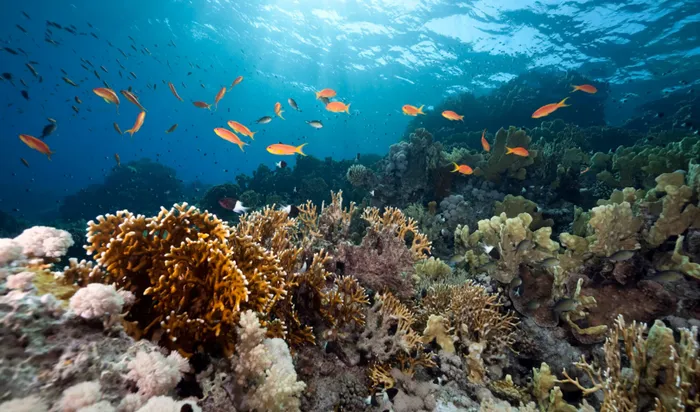Opportunities to strengthen economies, foster innovation abound in the ocean

Stephan Kerkhofs via Getty Images.
Climate change, pollution and overfishing, however, pose a threat to the opportunities and the lives of the more than three billion people who depend on the ocean for food and income.
The UN Conference on Trade and Development (Unctad) released its Trade and Environment Review 2023 on May 8, assessing the effects of human activity and many global crises on various industries dependent on the ocean, such as fishing, seafood production, shipping and coastal tourism.
A global “Blue Deal” in trade, investment, and innovation is proposed in the paper, which was presented at the third UN Trade Forum. The ocean is home to 80% of the world’s life. It expands on ideas discussed at the second UN Ocean Conference in 2022 and the fourth UN Oceans Forum.
The maritime economy is ripe with potential.
Unctad Deputy Secretary-General Pedro Manuel Moreno emphasised the need to preserve marine life while reaping economic benefits from the ocean.
More investment in sustainable industries with potential for growth is something poor countries could use, and a global “Blue Deal” might help make that happen. Seaweed farming and alternatives to plastics are two of the promising industries highlighted in the research.
The value of the worldwide seaweed market is projected to reach $16.5 billion (R334bn), more than tripling from $4.5bn in 2000.
To flourish, seaweed requires neither irrigation nor fertilisation. Food, cosmetics, and bio-fuels may all be produced from it, and it offers a replacement for the 11 million metric tonnes of plastic that end up in the ocean every year.
In addition to seaweed, there are numerous additional renewable resources that might be used to create plastic substitutes such as straws, food packaging and so on.
Bamboo, coconut husks, banana plants and agricultural waste are just a few examples of the abundant resources available in many poor countries. In addition, there is a wealth of cultural and historical knowledge within their communities regarding the application of the materials.
In 2020, the global commerce in plastic alternatives totalled around $388 billion, or nearly a third of the traffic in plastics derived from fossil fuels. Thus, there is tremendous room for expansion.
In order to take advantage of the new ocean prospects, it encourages businesses to finance projects in developing nations to improve the countries’ technological infrastructure, human resources and production capacity.
The predicted 2020 global export value of ocean-based goods and services, such as seafood, port equipment, shipping and coastal tourism was $1.3 trillion.
The Covid-19 crisis highlighted the strength and adaptability of some industries while highlighting the acute vulnerability of others. While total exports declined by 3.2% in 2020, those of ocean-based commodities fared better than services, which plummeted by 59%.
Many coastal communities in developing countries felt the effects of the decline in service sector income, particularly those dependent on the tourism industry. To strengthen their economic defences against future shocks, nations must diversify their ocean exports and activities.
It is recommended in the report that crisis recovery plans and climate change adaptation strategies include the promotion of a diverse and sustainable ocean industry.
It’s estimated that $35bn is spent on fishing subsidies worldwide. Overfishing could result, in part, from the estimated $20bn spent annually on fuel subsidies and other incentives to increase the size of the fishing fleet.
In light of the fact that 34% of the world’s fish stocks are at or below biologically sustainable levels, the report strongly encourages governments to sign the World Trade Organization Agreement (WTO) on Fisheries Subsidies, which was agreed on June 17, 2022.
The deal is a significant step towards removing damaging subsidies because it forbids financial backing for fishing in overfished stocks, prevents financial backing for unlawful fishing, and eliminates financial backing for fishing on the high seas where regulations are lax.
Two-thirds of the 164 WTO members must deposit “instruments of acceptance” before they may take effect.
In a similar vein, the study urges states to sign and ratify the March 4, 2023 accord on marine biodiversity beyond national jurisdiction. The accord, sometimes referred to as the “High Seas Biodiversity Treaty”, will provide mechanisms for the equitable and fair distribution of benefits derived from marine genetic resources and set up marine protected zones.
SDG 14, which focuses on marine life, receives the least funding of all the Sustainable Development Goals (SDG). From 2013 to 2018, the maritime economy received only 1.6% of overall official development assistance, or about $2.9bn annually.
The ocean catastrophe requires far more than this. Estimates suggest that, in light of the effects of Covid-19 and other recent setbacks, a minimum annual investment of $175bn is required to meet SDG 14 by 2030.
Conservation and restoration of mangroves, decarbonisation of international shipping, sustainable ocean-based food production, and offshore wind production are the four sustainable ocean solutions estimated to generate net benefits of $15.5 trillion by 2050, from a current investment of $2.8 trillion.
Moreno has stated that “now is the time to set a new course” by investing more in creating a sustainable maritime economy.
Current Affairs
Related Topics: